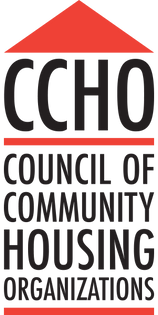San Francisco Ballot Measure Election Results
By SF Weekly Staff
In addition to different city officials, voters decided on a variety of measures in this election, from campaign contributions to affordable housing. Some measures, like Proposition C’s proposal to overturn San Francisco’s e-cigarette ban, were hotly contested. Others, like Proposition B’s renaming of city agencies, attracted less attention. Here are the ballot measure results so far.
To see how the candidate races are faring, click here. To get the background info for each race, check out our election guide.
Check back for live updates during election night.
Proposition A: Affordable Housing
Prop. A would approve a $600 million bond funding measure intended to construct and acquire more affordable housing. Crafted by Mayor London Breed and Board of Supervisors President Norman Yee, the proposition needed a two-thirds majority to pass.
As of 11 p.m., the measure appears to have passed with 69 percent of the vote (nice).
$150 million would go toward public housing, $220 million for low-income housing, $60 million for middle-income housing, $150 million for senior housing, and $20 million for educator housing.
Proposition B: City Agency Rebranding
This measure to rename the Department of Aging and Adult Services as the Department of Disability and Aging Services passed easily — it had no official opposition.
Proposition C: E-cigarettes
E-cigarette maker Juul spent millions of dollars supporting this ballot measure, which would overturn e-cigarette banner San Francisco’s June prohibition on the sale of e-cigarettes.
The later the evening goes, the worse it looks for Juul. NO votes had over 75 percent of the first 2,000 or so votes, a lead which has ballooned five points to over 80 percent with 473 of 474 precincts reporting.
Proposition D: Traffic congestion mitigation tax
Prop. D institutes a 3.25 percent tax on individual ride-sharing rides and a 1.5 percent tax on shared ones, the proceeds from both of which would go toward public transit and infrastructure.
The measure, which requires a two-thirds majority, had 66.66 percent of voters saying YES as of 11 p.m.
Lyft and Uber agreed not to campaign against the measure, which would raise an estimated $32 million.
Proposition E: Affordable housing for teachers
Known as Affordable Homes for Educators and Families Now, Prop. E would allow 100 percent affordable and educator housing to be built on public land.
Current measure results have Prop. E passing with 74 percent of the vote.
News that Proposition E had hit 71 percent was met with joy at Virgil’s, as advocates gathered to celebrate.
“This is the biggest citywide zoning effort for affordable housing in modern history,” said a jubilant Peter Cohen, co-director of the Council for Community Housing Organizations (CCHO).
“It’s storming through right now,” said Megan Orpwood-Russell, executive director of Yes on Affordable Housing (YAH). “I feel positive right now. We’re not called ‘No to SF housing’, so it’s exciting. We need Prop. A to make it work but we’re feeling good.”
Proposition F: Campaign contributions
This measure is designed to create greater transparency in San Francisco elections by requiring the disclosure of the largest donors of Super PACs and how much they donated.
Prop. F appears on the path to victory, with 76 percent YES votes as of 11 p.m.
Regarding Proposition F’s initial success, Supervisor Gordon Mar said, “The people of San Francisco know what we know: We deserve transparency in our democracy.”
